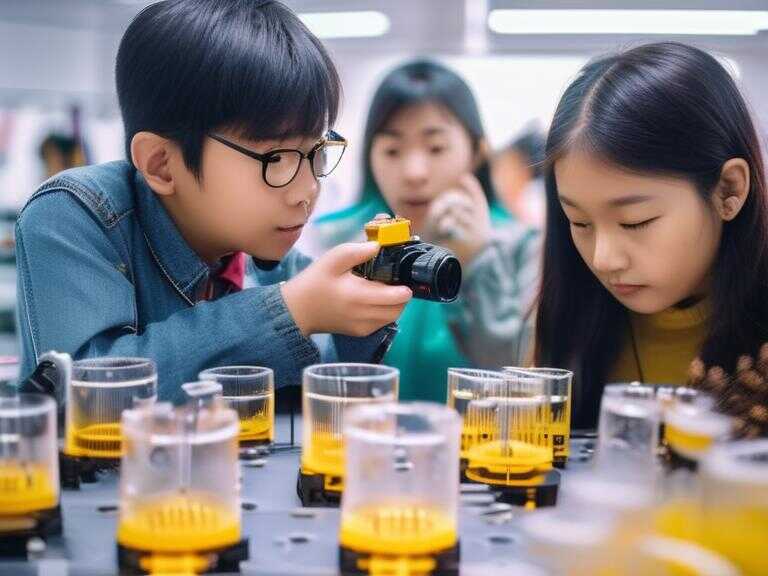
Nanotechnology Sparks Curiosity in Elementary Science Learning
Nanotechnology-based learning engages elementary students, improving science understanding and critical thinking skills.

The rapid advancements in technology have sparked a revolution in various sectors, including education. As educators strive to engage students in the 21st century, they are increasingly exploring innovative approaches that go beyond traditional teaching methods. One such promising avenue is the integration of nanotechnology into elementary science curriculum. Nanotechnology, with its focus on manipulating matter at the atomic and molecular level, offers a unique opportunity to spark curiosity, foster critical thinking, and enhance students' understanding of the world around them.
Nanotechnology: A Gateway to Scientific Exploration
While traditional science education often focuses on abstract concepts and theoretical frameworks, nanotechnology provides a tangible and relatable context for learning. By exploring the properties and applications of materials at the nanoscale, students can connect classroom science with real-world phenomena. Nanotechnology's multidisciplinary nature also bridges various subjects, fostering interconnectivity and deeper understanding.
Elementary school is a crucial period for shaping students' scientific curiosity and developing their critical thinking skills. Nanotechnology in education presents a compelling opportunity to ignite a passion for science and equip young learners with the tools they need to navigate an increasingly complex world.
Student Engagement Through Real-World Applications
One of the key challenges in science education is engaging students in meaningful learning experiences. Traditional lectures and textbook-based instruction often fail to capture their attention and spark their curiosity. Nanotechnology, however, offers a wealth of real-world applications that resonate with young minds. From advanced medical treatments to innovative electronics, nanotechnology's impact on everyday life is undeniable.
By incorporating nanotechnology into the curriculum, educators can create engaging learning activities that allow students to explore these applications firsthand. For example, students can learn about the role of nanoparticles in sunscreen by conducting experiments to test their effectiveness. They can also investigate the use of nanomaterials in water purification, fostering a sense of responsibility towards environmental sustainability.
Cultivating Critical Thinking and Problem-Solving Skills
Critical thinking is an essential skill for success in the 21st century. It enables individuals to analyze information, solve problems, and make informed decisions. Nanotechnology provides a unique platform for developing these skills in elementary students. By engaging with complex scientific concepts and real-world challenges, students learn to think critically, evaluate evidence, and construct their own understanding.
For instance, when exploring the ethical implications of nanotechnology, students are encouraged to consider different perspectives, weigh potential benefits and risks, and formulate well-reasoned arguments. Such activities promote intellectual growth, enhance communication skills, and prepare students for the challenges of higher education and future careers.
The Role of Technology in Enhancing Learning
Technology plays a pivotal role in facilitating effective nanotechnology in education. Web-based platforms, interactive simulations, and multimedia resources provide students with immersive learning experiences that enhance their understanding and engagement. Educators can leverage these tools to create dynamic lessons, personalize learning pathways, and foster collaboration among students.
Moreover, technology allows for real-time feedback and assessment, enabling educators to monitor student progress and tailor instruction accordingly. By integrating technology seamlessly into the curriculum, schools can create a stimulating and enriching learning environment that prepares students for success in an increasingly digital world.
Share news















